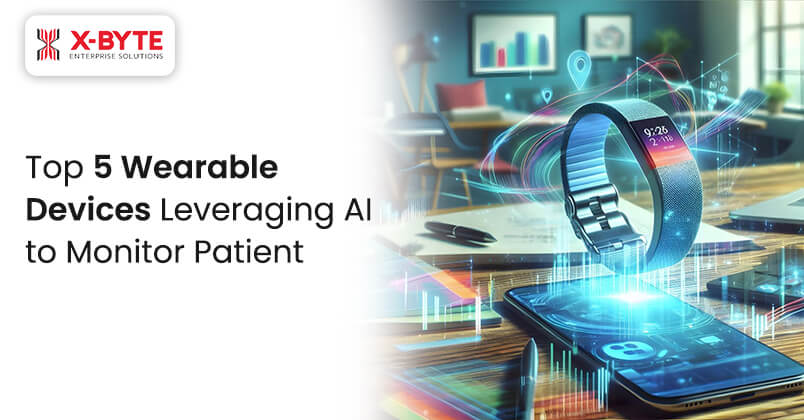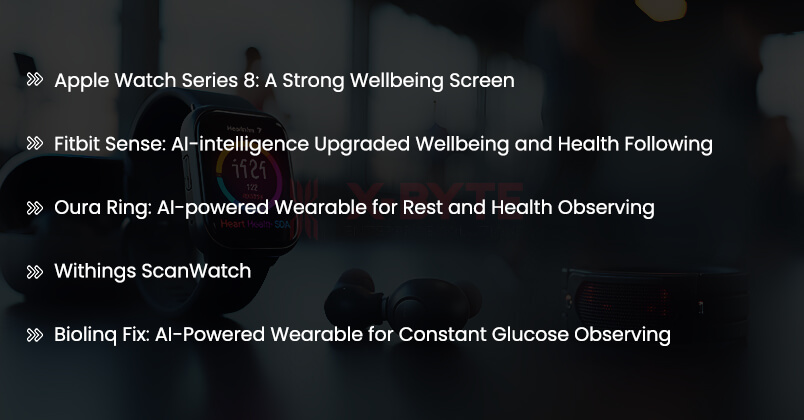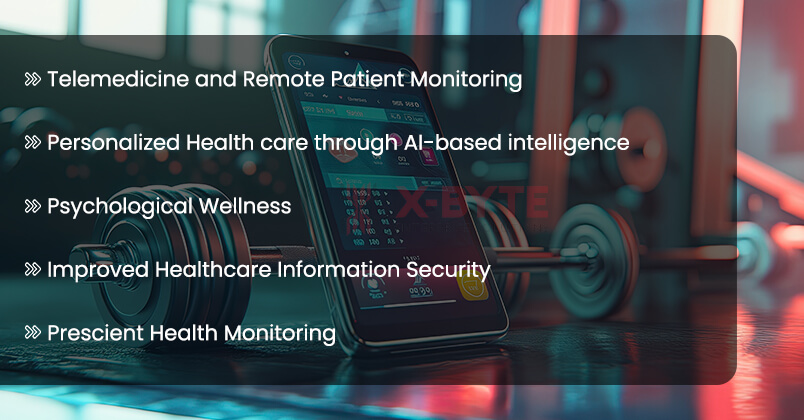-
solutinos
-
Hire
Frontend Developer
Backend Developer
-
NodeJS Developer
-
Java Developer
-
Django Developer
-
Spring Boot Developer
-
Python Developer
-
Golang Developer
-
Ruby on Rails Developer
-
Laravel Developer
-
.NET Developer
Technology
-
Flutter Developer
-
React Native Developer
-
Xamarin Developer
-
Kotlin Developer
-
Cross-Platform Developer
-
Swift Developer
-
MongoDB Developer
-
C Developer
-
Smart Contract Developers
Cloud
-
-
Services
Mobile Development
Web Development
- Work
-
Multi Services App
-
Food Delivery App
-
Grocery Delivery App
-
Taxi Cab Booking App
-
Multi Services App
-
OTT Platform APP
-
Social Media APP
-
Freelance Service App
-
Car Rental App
-
Medicine Delivery App
-
Liquor Delivery App
-
Sports Betting App
-
Online Coupon App
-
eLearning App
-
Logistics & Transportation App
-
Courier Delivery App
-
On-Demand Real Estate App
-
E-Wallet APP
-
Online Dating App
-
Handyman Services App
-
-
Process
-
Company

Quick Summary : The wearable device market has disrupted how individuals approach health. With a rise in the access and affordability of wearable devices, monitoring health and taking preventive measures against risk has become easier. Though the wearable market has grown in the last decade, advanced technology like AI-driven sensors, ML algorithms, biometric data processing, and IoT integration has stayed ahead of the curve.
When leading management consulting firm McKinsey conducted a survey titled– “Five trends shaping the consumer health and wellness space in 2024”, the results clearly showed the start of the era defined by wearable devices. Wearable devices have transformed the healthcare industry by providing real-time monitoring, data collection, and advanced analysis to improve patient outcomes. This transition towards wearable technology is fuelled by the inclination of people to prioritize wellness.
AI-powered wearables are playing an increasingly important role in managing patient health. Healthcare leaders have taken notice of this rising trend as evident from the recent McKinsey survey where 62% of respondents looked at AI as a means to improve customer experiences.
By integrating AI intelligence into these wearable devices, health experts can create their AI fitness apps by hiring a trusted healthcare software development company. With the ideal information, prompting better independent direction and development of the patient's well-being, these apps go a long way in improving treatment outcomes.
In this article, we take a look at the top five wearable devices that have piqued public interest by using AI to monitor patient well-being.
The Role of AI-based Intelligence in Health and Fitness
Post-COVID, people across the globe have started incorporating technology as a means to monitor health in their daily lives. A BCG X survey reported that in a scenario where only 41% of women considered that they had the right access to health services, digital health solutions stood as a savior.
This is when the healthcare industry started looking at taking healthcare to the patients and removing the dependence on hospitals for regular health monitoring. AI-based intelligence is changing the health industry in various ways, and simulated AI-powered wearables are driving the change in the healthcare industry. These wearable devices use AI intelligence to monitor the patient's well-being information gathered through sensors, providing health experts and patients with significant information and data.
The Use of AI in Healthcare:
Healthcare has adopted technology as a means to provide better patient care and the wearable health segment has boomed because of the increased awareness post-COVID. The typical use cases of AI in healthcare below focus on the possibilities that AI brings for regular health monitoring, and better health at a lower cost.
- Personalized Wellbeing: AI-based intelligence optimizes patient information every second.
- Early diagnosis of problems: AI-based intelligence helps in recognizing alarming problems before they get worse. For example, unusual heart rhythms or unpredictable glucose levels.
- Regular observation: AI-powered wearables with simulated intelligence abilities empower regular monitoring, making patients aware of potential medical problems progressively.
List of Top 5 AI-Powered Wearables

According to Gartner, the market for AI-powered wearables is slowly rising and shows a potential to reach 644 million units combined with a spending of $90 billion. However, some major players stand apart for their capabilities and the AI-powered features they provide. Here are the best 5 AI-powered wearables that have scaled the ranks.
Apple Watch Series 8: A Strong Wellbeing Screen
Apple is a major player in the wearable devices market accounting for 40% of smartphone watch sales in Q4 of 2020. The Apple Watch 8 series powered by AI, is a major addition to the wearable gadgets market. With work-in sensors like an ECG screen and blood oxygen sensor, the device is equipped for body vitals measurements, such as pulse and blood oxygen levels, and in any event, distinguishing strange heart rhythms.
The AI-based intelligence calculations in the Macintosh Watch consistently gather information to offer in-depth knowledge about critical parameters, prioritizing well-being and saving money. This keeps the medical care experts updated about the patient's health parameters and helps prioritize and monitor patient health remotely Also, the watch's capacity to identify falls and its coordination with the ECG provides real-time support in case of emergencies.
Key Highlights of Apple Watch Series 8:
- Pulse and ECG checking with simulated intelligence-based irregularity recognition
- Fall identification and crisis cautions
- Continuous well-being investigation and notices
Fitbit Sense: AI-intelligence Upgraded Wellbeing and Health Following
Fitbit, a frontrunner in wellness wearables, has come up with the Fitbit Sense, which uses simulated intelligence to give a thorough glance at a patient's well-being. With stellar capabilities powered by cutting-edge sensors, the Fitbit screens pulse rate, feelings of anxiety, and other parameters during rest and activity. This AI-powered wearable utilizes intelligence calculations to distinguish changes in physiological information and give suggestions to further develop well-being. Additionally, Fitbit has undergone a major transition with its new Gemini-powered AI assistant that helps solve patients' queries related to health.
Key Features of FitBit Sense:
- Functionalities make the gadget a wellness tracker as well as a device for advancing analyzed health.
- AI-based intelligence controls pressure through directed breathing activities
- Regularly checks the health parameters and provides customized improvement tips
- Accesses your pulse fluctuation for stress recognition
Ready for the future of patient monitoring in healthcare?
Partner with X-Byte for high-precision healthcare wearable app development!
Oura Ring: AI-powered Wearable for Rest and Health Observing
The Oura Ring is a smooth, shrewd ring that is connected with sensors to understand rest parameters, action levels, and generic health concerns. Unlike massive wrist-worn gadgets, the Oura Ring offers a more unobtrusive yet profoundly successful method for observing well-being measurements. The Oura Ring website claims to have the highest sensitivity for wake detection standing at 68.6 % compared to 67.7% for Fitbit and 52.4% for Apple Watch.
AI-based intelligence is a major tech feature that expands Oura Ring's capacity to understand patients' sleep and improves sleep hygiene by offering a personalized sleeping routine. The device uses a blend of sensors and AI calculations to assess information foresee the patient's health report and prepare the individual for the day ahead. For people with sleep problems, sleep apnea, and other sleeping disorders or those looking for better sleep quality, the Oura Ring is an important and must-have addition.
Key Highlights of Oura Ring, The AI-Powered Wearable:
- Simulated intelligence-driven sleep examination and customized sleep suggestions.
- Regularly active and following your well-being.
- High-level status scoring for the everyday well-being of the patient.
Withings ScanWatch
An AI-based intelligence heart well-being observation with Withings ScanWatch incorporates simulated intelligence to offer high-level checking of heart well-being. The gadget is outfitted with a clinical-grade electrocardiogram (ECG) sensor and an oximeter to analyze blood oxygen levels, making it especially valuable for those with cardiovascular issues or those in danger.
What separates the ScanWatch is its artificial-intelligence controlled calculations that can recognize sporadic heart rhythms, including atrial fibrillation (AFib), and aware the patients about any future shortcomings. This element considers early identification and mediation, which is pivotal in preventing serious heart conditions.
A study published in the National Library of Medicine Across all activity domains found that the ScanWatch measured HR with MAPE values < 10%, and found it suitable for daily use rather than clinical trials and healthcare.
Key Features Of Withings ScanWatch:
- AI-based atrial fibrillation (AFib) discovery
- Persistent pulse observation and ECG examination
- Blood oxygen level following AI-based intelligence-driven experiences
Biolinq Fix: AI-Powered Wearable for Constant Glucose Observing
Biolinq, which raised $58 Million for its advanced wearable biosensors, is a disruptor in the metabolic health segment. The Biolinq Fix is a novel innovation which combines AI, for the well-being of people suffering from diabetes. Intended to constantly screen glucose levels, this fix gives continuous information through a harmless, skin-worn sensor. Artificial intelligence is utilized to investigate the gathered information and foresee glucose patterns, empowering patients to make preventive moves before their glucose levels arrive at hazardous levels.
This AI-powered wearable is especially beneficial for patients with diabetes, as it takes out the requirement for finger-prick tests and gives more persistent and exact information. This AI-powered wearable capacity to send notices about glucose variances engages patients to deal with their condition more.
Key features of Biolinq’s Wearables:
- Consistent glucose observation with man-made intelligence-driven pattern forecast
- Harmless sensor for usability
- Ongoing notices and alarms for glucose level changes
Future of Wearables Driven By AI
The potential for AI-based intelligence-controlled wearables in medical services is boundless. As simulated intelligence keeps on developing, we can anticipate considerably further developed highlights, for example, prescient examination for patient sickness on the board and more profound incorporation with electronic wellness records (EHRs).
Future Capability of AI-based Intelligence in Medical Services Wearables innovation is on top, and the opportunities for fitness tracking app development are huge. The staggering growth in healthcare AI solutions is further powered by the smooth integration of wearables with smartphones and the Internet of Things (IoT). Additionally, the rise in awareness about health and fitness has made wearable devices a must-have for discerning customers.
AI-based intelligence will keep on working on its capacities, permitting wearables to analyze potential medical problems, for example, strokes, and diabetic complexities.
How To Choose The Right AI-based Intelligence Controlled Wearable?
While choosing an AI-powered wearable, it's critical to consider your particular wellness concerns and diseases if any. A few devices cover a whole lot of parameters ranging from chronic disease monitoring to oxygen levels, heart rate, sleep cycles, blood pressure, and glucose monitoring, while others might just help you track steps.
While choosing an AI-based intelligence wearable for health checking, take into observation your particular wellness objectives and significant need. If you are also looking for a heart-rate monitor, sleep examination, or health wearable, there are many options available in the market that take special care of your health needs.
- Usefulness: Ensure that the wearable offers the elements that line up with your healthy life goals, whether it's heart rate, glucose level, or stress management.
- Precision: The precision of sensors can determine the results, and AI-based intelligence calculations are basic for dependable information. Search for wearables with FDA endorsement or certification/authentication from health bodies if you are looking for clinical-level precision.
- Battery Duration: Pick a wearable with adequate battery duration to guarantee constant checking without the need for regular charging.
- Define Your Health Goals: Understand the features of the wearable to ensure it lines up with your overall well-being needs.
- Check Accuracy: Understand the level of accuracy of the wearable by reading the specifications sheet, and check the precision of sensors and artificial intelligence development results.
Trends Health And Fitness App Development Industry

AI-based intelligence-fueled health services wearables have become an extension of the health industry. Now individuals can show their health status to health professionals and stay mindful about their fitness. According to current market trends, AI-powered wearables are expected to grow at a CAGR of 17.2% between 2024 to 2029. The other areas in which AI has helped power remote healthcare as as below:
Telemedicine and Remote Patient Monitoring
Quite possibly the greatest pattern in AI-based intelligence-controlled wearables is the rising combination of telemedicine and far-off persistent observing stages. Everyone shifts toward virtual medical care, and wearables that give nonstop information streams —, for example, pulse, and glucose levels are becoming fundamental apparatuses for health specialists.
By adjusting to telemedicine frameworks, AI-based intelligence-controlled wearables permit medical services experts to screen patient circumstances continuously, empowering early mediation and lessening the requirement for physical visits from a distance. This addition works for better management of constant sicknesses, like diabetes and hypertension, as patients can send their information to healthcare specialists without leaving their homes.
Let the power of AI 5X wearable gadget’s effectiveness!
Build the right app with X-Byte’s wearable app development services!
Personalized Health care through AI-based intelligence
AI intelligence is taking a huge part in giving personalized health services through wearable devices. This AI-based intelligence analyses every minute enormous datasets with individual-fitted suggestions.
Wearables can now create health in light of individual information patterns, for example, what explicit exercises or sleeping cycles mean for pulse changeability or glucose levels.
Psychological Wellness
Another arising pattern is the attention on emotional well-being checking to utilize AI-based intelligence-controlled wearables. As the consciousness of psychological wellness issues keeps on developing, many companies are creating wearables that track pressure, tension, and temperament problems.
For instance, AI-powered wearables like the Fitbit Sense use simulated intelligence to screen feelings of anxiety through pulse changeability and skin temperature, giving patients health experiences and directed breathing activities to assist with overseeing tension.
Improved Healthcare Information Security
With the rising utilization of AI-powered wearable gadgets for well-being information, there is a developing emphasis on information security and protection. Customers are turning out to be more worried about how their well-being information is being utilized, and organizations are answering by putting resources into better information encryption and security insurance measures.
AI-based intelligence-fueled medical care wearables are taking on cutting-edge network safety conventions to guarantee that patient information is shielded from unapproved access. These actions are fundamental to acquiring buyer trust as AI-based intelligence-fueled wearables keep on social occasions more private well-being information.
AI-based intelligence-fueled AI-powered wearables can foresee wellness results before they happen, on account of the force of prescient monitoring. By persistently observing fundamental signs, AI-based intelligence calculations can monitor designs continuously and anticipate future wellness chances.
For example, wearables that screen cardiovascular wellness can share the indications of a potential respiratory failure or stroke before side effects show up.
Wrapping Up
Smart Wearables: Powering An Era of AI-Driven Personal Healthcare
AI-based intelligence-controlled healthcare wearables are reshaping the healthcare industry by giving continuous access to health information through real-time observation, personalized experiences, and early recognition of potential health threats and risks.
At X-Byte we use our expertise in fitness tracker app development to help our clients bring feature-rich wearables that solve the biggest challenges in healthcare. The AI fitness app developed by our team of data scientists and ML experts ranks high in precision tracking and personalized analytics.
Additionally, we offer some of the best AI software for Healthcare that uses deep learning, predictive analytics, and NLP to deliver deep insights into patient health.
Wearable technology has reduced the load on healthcare providers and set the stage for a future where individual safety becomes a norm and health analytics becomes easier.
Turn health data into actionable insights. Choose X-Byte's wearable app development services. Contact Now!
As an emerging health and fitness app development company, we are committed to delivering the most accurate fitness tracker app that uses AI algorithms, biometric sensors, real-time analytics, and ML models to optimize user performance and health monitoring.
If you have the vision to create your fitness app, our fitness app developers can make it possible.
Frequently Asked Questions
-
What is a Healthcare AI Solution?
Healthcare AI solutions are medical-grade devices and wearables equipped with artificial intelligence and other advanced tech like medical IoT. These solutions make patient monitoring easy and help healthcare organizations (hospitals, clinics, etc.) better (up to 5X) their treatment outcomes and productivity.
-
How does AI-based intelligence develop
health care through wearables?
AI-based intelligence improves medical care by giving customized experiences, recognizing wellness irregularities early, and empowering continuous checking. AI-based intelligence calculations dissect information gathered by wearable devices, assisting clients and healthcare experts with settling on informed conclusions about the wellness of the board.
-
What are the advantages of artificial
intelligence-based wearables for patient wellness?
The advantages of AI-based intelligence wearables are to show accurate health reports, for the real-time notification of clinical issues, create health ideas, and generate alerts that can help healthcare personnel and individuals take proactive and preventive actions against potential health risks.
-
Could simulated intelligence wearables at any point assist with
the constant illness of the patients?
Indeed, The capability of AI-based intelligence wearables to monitor health parameters 24/7 is a major shift from the delays of visiting a healthcare professional. They help distinguish early indications of health concerns, and provide alerts when parameters fall above or below a limit. especially for conditions like diabetes, coronary illness, and hypertension.
-
How accurate are AI-based intelligence wearables like the Apple
Watch or Fitbit?
The AI-based intelligence wearables, like the Apple Watch and Fitbit, use state-of-the-art features like sensors, algorithms, and ML to deliver real-time health monitoring and personalized insights, making them highly accurate and trustworthy.
-
Are artificial intelligence-controlled wearables appropriate for
all ages?
AI-based intelligence-controlled wearables can be more effective for adults as children below a certain age have a developing body and the parameters are not similar to adults. Gadgets like the Apple Watch are also useful for the elderly as they give alerts in case of accidental falls.
